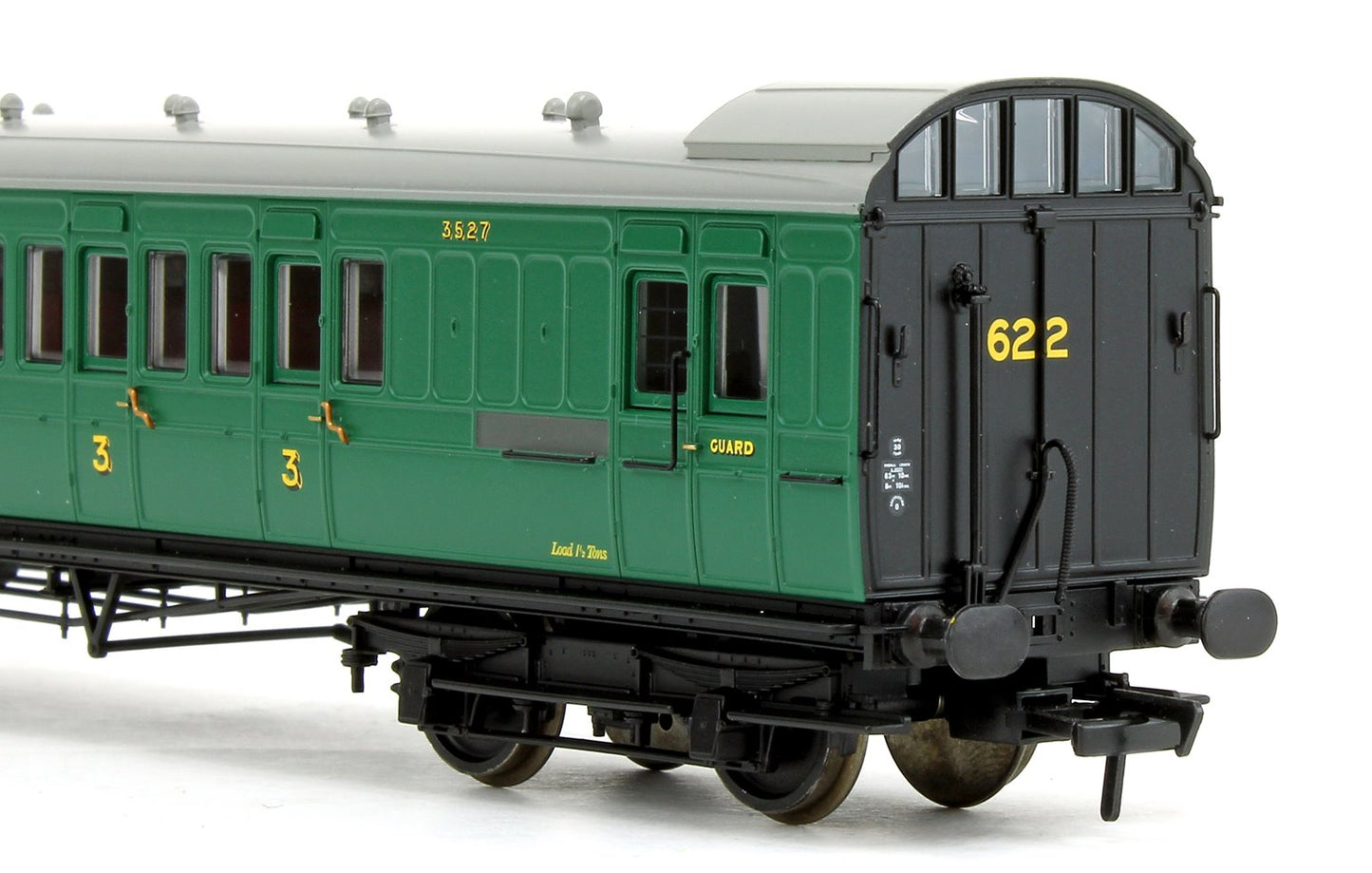Bachmann 39-603 SE&CR 60ft Birdcage Brake Third Lavatory SR Malachite Green 3527




Product Details
| SKU | BAC-39-603 |
|---|---|
| Vendor | Bachmann |
| Categories | Bachmann Bachmann Easter Sale Bachmann OO Gauge Bargains Best selling products Carriages & Coaches Era 3 HO-OO In stock Items Latest Releases New products OO Gauge Bargains OO Gauge Carriages & Coaches OO Gauge Latest Releases OO Gauge Rolling Stock OO Gauge scale Product Options Rolling Stock |
| Scale | OO Gauge |
| Share | |
| Features |
|
Product Description
Highlights
- both bodyside window configurations tooled for
- flush-glazed
- correct window corner radii
- fully detailed interior with partitions
- saloon tables
- lavatories appropriate to prototype
- fully decorated seating painted in accurate colours
- exquisite underframe detailing
- finely mounded brake details
- 4 sets of very finely moulded queen post truss rodding and turnbuckles
- Dynamos and battery boxes fitted to the SE&CR composite as prototype
- Dynamos fitted to the SR / BR Composite and the Brake Third as per prototype
- all new well detailed 8ft Heavy Fox coil spring bolster bogies
- metal wheels sets and pin point axles running in metal bearings
- Detachable couplings in NEM pockets
- close coupling mechanism
Separately applied fittings include:
- roof vents
- vacuum pipes
- handrails
- grab handles
- lamp irons and brake control apparatus (Brake coaches only)
History
Sixty-two 60ft three coach ‘birdcage’ sets were introduced by the South Eastern and Chatham Railway (SE&CR) between 1912 and 1915. The characteristic birdcage lookouts over each of the guards compartments give these sets their name and typify standard SE&CR non-corridor coaching stock. With their distinct character, being of pre-grouping origin, these sets were long lived and little modified during their lifetime, so have a wide applicability to modellers.
The sets comprised 2nd/ 3rd class composite Brake Lavatory (later declassified to Brake Lavatory Third), a 1st / 2nd (later declassified to 1st/ 3rd) Lavatory Composite and Brake Third. The Composites were built in batches with two distinct body side variations. The initial order had two wide windows on each side for the saloon, and the later examples had one wide and one narrow window for the saloon.



